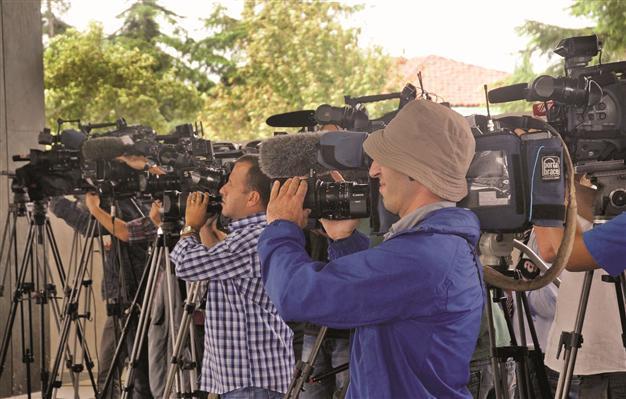Panel debates limiting communication freedom
ANKARA - Hürriyet Daily News

The four parties have argeed on a charter clause that is binding for journalists. DAILY NEWS photo, Hasan ALTINIŞIK
At a time when a state-wide media ban related to the deadly twin attacks in the border town of Reyhanlı sparked strong reactions from civil society, Parliament’s Constitution Conciliation Commission recently debated the grounds that would justify limiting freedom of expression and communication.
The commission debated the article covering freedom of communication at its meeting on May 14. The sole objection came from the Peace and Democracy Party (BDP), while the other three parties - the ruling Justice and Development Party (AKP), the main opposition Republican People’s Party (CHP) and the Nationalist Movement Party (MHP) - supported the idea of limiting freedom of communication on the grounds of “national security and public order”
Eventually, the four parties agreed on a clause, stating: “Whatever the reason or the purpose is, no one can be forced to disclose their opinions and thoughts, nor be condemned and accused for their thoughts and opinions.”
Liberty to exchange newsThey also agreed on another clause, stating: “Everyone has the freedom to disclose and disseminate their opinions single-handedly or collectively, in verbal or written form, through pictures or other ways.
This freedom includes the liberty to exchange of news or opinions without the intervention of official institutions.”
Government officials, including Prime Minister Recep Tayyip Erdoğan, have hailed the ban imposed concerning the May 11 attacks in Reyhanlı, Hatay, near the border with Syria, while CHP deputy İlhan Cihaner appealed to the Reyhanlı Criminal Court of Peace earlier this week for the abolition of the ban, arguing that it constituted a violation of the freedom of the press. Meanwhile, at Parliament on May 14, while the Constitution Conciliation Commission was debating limits to media freedom, the MHP said this freedom should be limited in the event of concerns related to national security. The MHP and the AKP, meanwhile, agreed that it should be limited on the grounds of concerns related to public order and public morals. Both the CHP and the BDP objected to such limitations.
A joint proposal by the CHP and the BDP stated: “The disclosure and publishing of opinions and news about which there is a public interest in declaring and access to these cannot be hampered or prevented on the grounds that these are state, commercial or professional secrets.” Eventually, due to objection to this proposal from the AKP and the MHP, the related clause was drafted with reservations, meaning that parties’ different proposals on those articles have been put into parentheses.
Meanwhile, all four parties agreed on prohibiting capital punishment, which was a hot item back in late 2012 when Prime Minister Recep Tayyip Erdoğan issued statements in favor of reinstating the death penalty.
